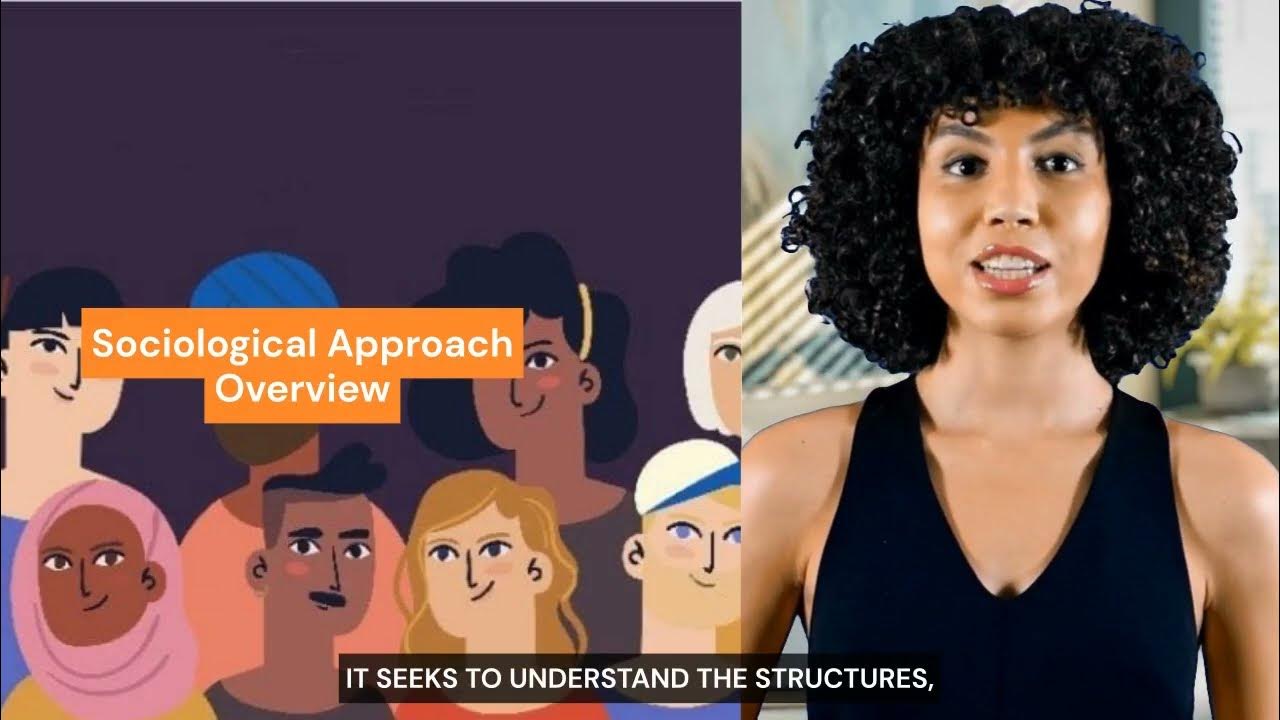Conflict theory | Society and Culture | MCAT | Khan Academy
Summary
TLDRConflict theory, rooted in Karl Marx's ideas, examines societal evolution through the lens of inequality and power struggles between social classes. It posits that economic disparities, such as those between the bourgeoisie and proletariat in 19th-century Europe, lead to class consciousness and potential societal upheaval. Marx's model suggests that the tension between a dominant thesis and a反抗的 antithesis results in a synthesis, which may become a new thesis, perpetuating a cycle of conflict and change. While the theory effectively models societal shifts, it overlooks the stability and cohesion within societies and is inherently critical of the status quo.
Takeaways
- 📚 Conflict theory is a sociological perspective that examines societal inequalities and their impact on social structures.
- 👥 It is rooted in Karl Marx's ideas, which emphasize the historical progression from feudalism to capitalism and socialism.
- 💼 In 19th century Europe, the bourgeoisie, or the wealthy upper class, held power despite being a minority, while the proletariat, or working class, was the majority.
- 🏭 The bourgeoisie owned the means of production, such as factories, and the proletariat relied on selling their labor to survive.
- 💰 There was a significant economic disparity between the factory owners and workers, which Marx believed would lead to societal change.
- 🔄 Marx proposed that class consciousness among the working class would be the catalyst for challenging the capitalist system.
- 🌀 He introduced the concept of thesis and antithesis, where the accepted state of society (thesis) would be opposed by a reaction (antithesis), leading to conflict.
- 🔄 The struggle between thesis and antithesis would result in a synthesis, a new state that temporarily resolves the conflict.
- 🔄 This synthesis would then become a new thesis, setting the stage for the next cycle of conflict and change.
- 🌟 Conflict theory effectively models the dynamic changes in society but does not account for periods of stability or explain how societies maintain cohesion.
- 🔍 It is a valuable tool for understanding societal complexities but has limitations in explaining the full spectrum of social dynamics.
Q & A
What is the main focus of conflict theory in studying society?
-Conflict theory focuses on the inequalities of different groups within a society, examining how these disparities shape social structures and dynamics.
Who is the foundational thinker behind conflict theory?
-Karl Marx is the foundational thinker behind conflict theory, with his ideas originating in the 19th century.
What are the key stages of societal evolution according to Marx?
-Marx believed that societies evolved through several stages, with the most important being feudalism, capitalism, and socialism.
How did the relationship between the bourgeoisie and the proletariat shape 19th century European society?
-In 19th century European capitalist society, the bourgeoisie owned the means of production and held power, while the proletariat, being the majority, were economically dependent on the bourgeoisie for employment.
What is the significance of economic inequality in Marx's view of societal change?
-Economic inequality, particularly the exploitation of the working class by the bourgeoisie, was seen by Marx as a catalyst for societal change, leading to class consciousness and potential revolution.
What is class consciousness according to conflict theory?
-Class consciousness in conflict theory refers to the collective awareness and unity among the working class about their shared exploitation and the need for change.
How does Marx's model propose that a society containing economic exploitation will eventually change?
-Marx's model suggests that a society where one group is economically exploited will lead to the formation of an opposing force (antithesis) that will struggle against the dominant group (thesis), potentially leading to a new social synthesis.
What is the role of the synthesis in the ongoing process of societal change according to conflict theory?
-The synthesis in conflict theory represents a temporary resolution of the conflict between thesis and antithesis, which may itself become a new thesis, setting the stage for future conflicts and changes.
How does conflict theory apply to historical movements like the struggle for African-American rights and women's suffrage?
-Conflict theory can be applied to historical movements by viewing them as struggles between the status quo (thesis) and the opposition (antithesis), which may lead to societal changes and new theses.
What are some limitations of conflict theory in understanding society?
-Conflict theory's limitations include its focus on instability and change rather than stability, its lack of explanation for how societies are held together, and its inherent bias against the status quo.
How does conflict theory contribute to our understanding of societal complexities?
-Conflict theory contributes to our understanding of societal complexities by providing a framework for analyzing power dynamics, economic disparities, and the potential for change driven by group conflicts.
Outlines

此内容仅限付费用户访问。 请升级后访问。
立即升级Mindmap

此内容仅限付费用户访问。 请升级后访问。
立即升级Keywords

此内容仅限付费用户访问。 请升级后访问。
立即升级Highlights

此内容仅限付费用户访问。 请升级后访问。
立即升级Transcripts

此内容仅限付费用户访问。 请升级后访问。
立即升级浏览更多相关视频

Teoría sobre La Paz: Conflicto social

Why is there Social Stratification?: Crash Course Sociology #22

Qu'est-ce qu'une classe sociale ?

What is Marxism (Sociology)

Karl Marx & Conflict Theory: Crash Course Sociology #6

Understanding Sociological Perspectives: Functionalism, Conflict Theory, & Symbolic Interactionism
5.0 / 5 (0 votes)
